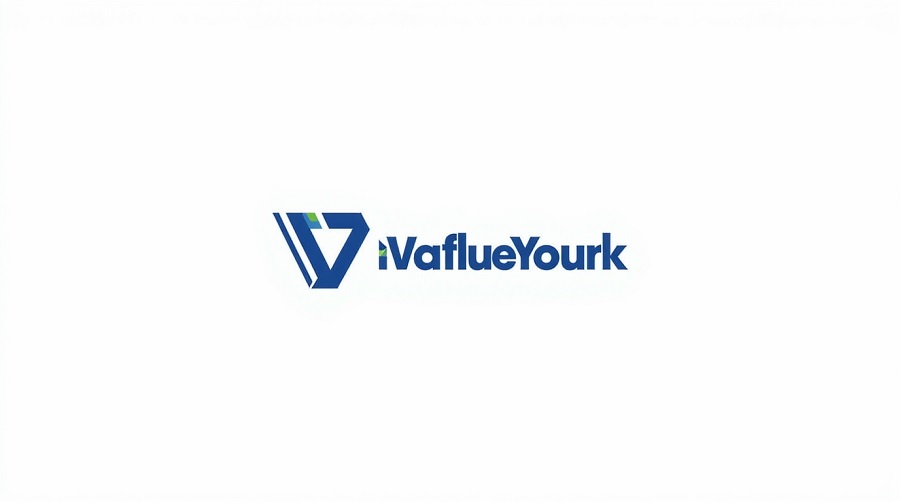Introduction to Doge Software Licenses Audit HUD
In the evolving world of software management and digital compliance, Doge Software Licenses Audit HUD has emerged as one of the most advanced tools for tracking, auditing, and managing software licenses efficiently. This technology-driven platform represents a major shift toward transparent, secure, and accurate auditing of software usage within businesses, government institutions, and development environments. As organizations depend more heavily on complex software ecosystems, ensuring license compliance becomes not just a matter of cost management but also of legal integrity and cybersecurity. The Doge Software Licenses Audit HUD brings all these crucial elements together under a single intelligent system designed to simplify auditing processes while maintaining the highest level of precision and accountability.
The idea behind this advanced audit heads-up display (HUD) is to provide organizations with a comprehensive overview of their software license inventory. It does this by scanning installed applications, validating license authenticity, monitoring usage patterns, and alerting administrators to potential discrepancies. As software ecosystems expand rapidly through hybrid and cloud integrations, traditional manual audits can no longer keep up. The Doge Software Licenses Audit HUD solves this by using automation, AI-driven analytics, and blockchain-inspired verification systems to ensure no license goes untracked or misused.
Understanding Software License Auditing and Its Importance
Before exploring how Doge Software Licenses Audit HUD functions, it is essential to understand what a software license audit entails. A software license audit is a formal process used to ensure that an organization’s software installations comply with the licensing terms set by the software vendors. These audits are not optional—they are often mandatory for companies using multiple enterprise applications. A failure to comply with license requirements can result in financial penalties, reputational damage, and even operational disruptions.
The Doge Software Licenses Audit HUD redefines how these audits are performed. Instead of relying on external audits conducted by vendors, this system allows organizations to perform continuous internal audits. It serves as a proactive compliance framework, helping organizations detect and correct licensing issues before they escalate. By automating the detection and verification process, it minimizes human error and ensures accurate real-time visibility into software usage and ownership.

What makes software license auditing critical in today’s world is the increasing complexity of software licensing models. Modern software can be distributed under multiple models—subscription-based, perpetual, open-source, or hybrid licensing. Each model comes with its own set of compliance rules. Without an automated audit tool like the Doge Software Licenses Audit HUD, managing such diversity becomes almost impossible for large enterprises.
The Core Concept Behind Doge Software Licenses Audit HUD
At its core, the Doge Software Licenses Audit HUD functions as a digital control hub for all license-related operations. The “HUD” or heads-up display concept means that users are presented with an interactive, real-time dashboard showing the complete state of their software assets. This intuitive visual layer provides clarity, allowing administrators to see at a glance which software products are compliant, which are nearing license expiration, and which ones might be under or overutilized.
The system integrates with existing IT management tools and uses advanced scanning protocols to identify all installed software instances across networks, cloud systems, and virtual environments. Once the data is gathered, the HUD analyzes licensing information against vendor databases to confirm validity. This intelligent verification process is powered by machine learning algorithms that continuously update based on new licensing standards, vendor rules, and regulatory changes.
One of the most remarkable aspects of Doge Software Licenses Audit HUD is its automation-first approach. The tool minimizes the need for manual audits, which often require weeks of tedious record-checking. Instead, it performs real-time audits with AI-driven logic that can adapt to changes instantly. Whether a company adds a new software suite or updates an existing one, the HUD recalibrates its license map automatically, ensuring 100% compliance accuracy at all times.
How Doge Software Licenses Audit HUD Works
The Doge Software Licenses Audit HUD operates on an intelligent multi-layered architecture. The first layer involves data collection from every endpoint and cloud instance where software is deployed. This data is securely aggregated into a centralized server where it undergoes verification. The second layer involves license classification, where the system identifies the license type—open source, commercial, trial, or subscription. Each license is then matched against its original terms of use.
The third layer is the audit analysis engine, where the HUD compares actual software usage data with allowed usage metrics. If any anomaly or inconsistency is detected, the system alerts administrators immediately through its heads-up display. For example, if a company’s license permits 10 active users but the system detects 12, the audit HUD will generate a compliance warning. This allows companies to take corrective action before vendors discover the discrepancy.
Finally, the reporting and visualization layer compiles all the audit results into easy-to-understand formats. These reports can be exported or integrated directly with enterprise resource planning systems for compliance documentation. The HUD’s ability to provide these insights in real-time makes it an invaluable asset for compliance officers, IT administrators, and CFOs alike.
Key Features of Doge Software Licenses Audit HUD
The Doge Software Licenses Audit HUD stands out because of its innovative and high-performance features. It offers dynamic license mapping, automated compliance monitoring, and predictive analytics for license optimization. These capabilities not only prevent non-compliance risks but also help organizations reduce costs by identifying unused or underutilized software assets.
Another important feature is its blockchain-based validation layer, which ensures that every software license entry is immutable and verifiable. This means once a license is authenticated, its proof of legitimacy is permanently recorded in a decentralized ledger, making it impossible for internal tampering or external fraud. This level of transparency transforms how software auditing is perceived, turning it from a burden into a trust-building mechanism.
The audit HUD also provides secure role-based access, allowing different departments to view data relevant to their operations without compromising overall system security. This flexibility makes it suitable for organizations of all sizes, from startups to large multinational corporations.
Why Doge Software Licenses Audit HUD Matters for Businesses
In today’s digital ecosystem, businesses face tremendous pressure to maintain compliance with licensing laws while also optimizing operational costs. Non-compliance can lead to severe legal and financial consequences, while over-licensing wastes valuable resources. The Doge Software Licenses Audit HUD bridges this gap by providing real-time insights into license usage, enabling smarter decision-making and risk prevention.
Furthermore, this system empowers organizations to be audit-ready at all times. Instead of scrambling to gather data during a vendor-initiated audit, companies can simply generate comprehensive reports instantly from the HUD. This proactive compliance approach not only saves time but also demonstrates corporate responsibility and governance maturity.
From a cybersecurity perspective, the Doge Software Licenses Audit HUD also prevents the use of unauthorized or pirated software within networks. By continuously scanning systems and verifying digital signatures, it protects organizations from security vulnerabilities that can arise from unlicensed applications. This feature alone makes it an essential tool for enterprises that prioritize both compliance and digital safety.
Integration with Modern Cloud and Hybrid Systems
As more organizations migrate to cloud-based environments, license management becomes increasingly complex. Cloud services often operate on subscription or pay-per-use models, which require constant monitoring to avoid overcharges or compliance breaches. The Doge Software Licenses Audit HUD seamlessly integrates with cloud platforms like AWS, Microsoft Azure, and Google Cloud to provide a unified view of both on-premise and cloud licenses.
The system’s adaptive intelligence ensures that even in multi-cloud environments, license tracking remains accurate and transparent. It identifies redundant subscriptions, helps optimize resource allocation, and ensures full alignment with vendor agreements. This cloud adaptability gives businesses an unprecedented level of visibility across all digital assets, making the HUD an indispensable companion in digital transformation journeys.
The Role of Artificial Intelligence in Doge Software Licenses Audit HUD
Artificial intelligence plays a central role in the Doge Software Licenses Audit HUD. Through predictive analytics, it can forecast future licensing needs based on current usage trends. This means companies can plan renewals, negotiate contracts, and allocate budgets more strategically. The AI also detects patterns of misuse or duplication, alerting managers before such issues become costly liabilities.
Another AI-driven feature is the smart recommendation engine, which suggests optimization strategies to reduce unnecessary license expenses. For example, if the HUD identifies that certain software is rarely used, it can recommend license downsizing or switching to a different pricing tier. This intelligent guidance turns software auditing into a proactive business optimization tool rather than a reactive compliance obligation.
Ensuring Transparency and Trust with Blockchain Technology
The Doge Software Licenses Audit HUD leverages blockchain to maintain a tamper-proof record of license transactions. Each license validation event is logged into a decentralized ledger, ensuring that the audit trail remains verifiable and transparent. This not only builds trust internally but also provides external auditors with a reliable source of truth during reviews.
Blockchain also strengthens vendor relationships by providing proof of compliance that cannot be manipulated. By offering verifiable transparency, the system positions companies as trustworthy partners, which can lead to better licensing agreements and smoother audit processes. This innovative use of blockchain within the Doge Software Licenses Audit HUD marks a significant evolution in digital compliance technologies.
The Future of License Management with Doge Software Licenses Audit HUD
Looking ahead, the Doge Software Licenses Audit HUD is set to become a cornerstone in enterprise software governance. As regulatory frameworks evolve and software ecosystems become even more intricate, having an automated, intelligent, and transparent license auditing system will be indispensable. The continuous development of AI algorithms and blockchain validation will make the HUD even more efficient and reliable.
Future versions are expected to introduce deeper integration with DevOps pipelines, allowing software audits to be embedded directly into development and deployment workflows. This will ensure compliance from the moment software is installed to its eventual retirement, creating an unbroken chain of accountability.
Conclusion
In conclusion, the Doge Software Licenses Audit HUD represents a transformative leap forward in how organizations manage, track, and validate their software licenses. It combines automation, artificial intelligence, and blockchain transparency into a single unified platform that redefines license auditing for the modern digital era. Businesses that adopt this technology gain not only compliance assurance but also operational efficiency, financial savings, and enhanced cybersecurity.
The future of software compliance will belong to systems that can operate continuously, intelligently, and transparently and Doge Software Licenses Audit HUD is leading that evolution. For any organization aiming to maintain full licensing integrity while optimizing digital operations, this solution stands as the ultimate choice in the pursuit of reliability, accountability, and trust.
FAQs
What is Doge Software Licenses Audit HUD?
A1: It is an advanced software auditing tool designed to monitor, verify, and manage software licenses through AI and blockchain technology.
How does Doge Software Licenses Audit HUD ensure compliance?
A2: It performs continuous real-time audits, automatically comparing software usage against license agreements.
Can Doge Software Licenses Audit HUD integrate with cloud systems?
A3: Yes, it integrates seamlessly with cloud platforms like AWS, Azure, and Google Cloud.
What makes it different from traditional audit tools?
A4: It uses automation, machine learning, and blockchain to provide unmatched accuracy and transparency.
Who should use Doge Software Licenses Audit HUD?
A5: It is ideal for businesses, developers, and IT managers who need complete control and assurance over software compliance.



